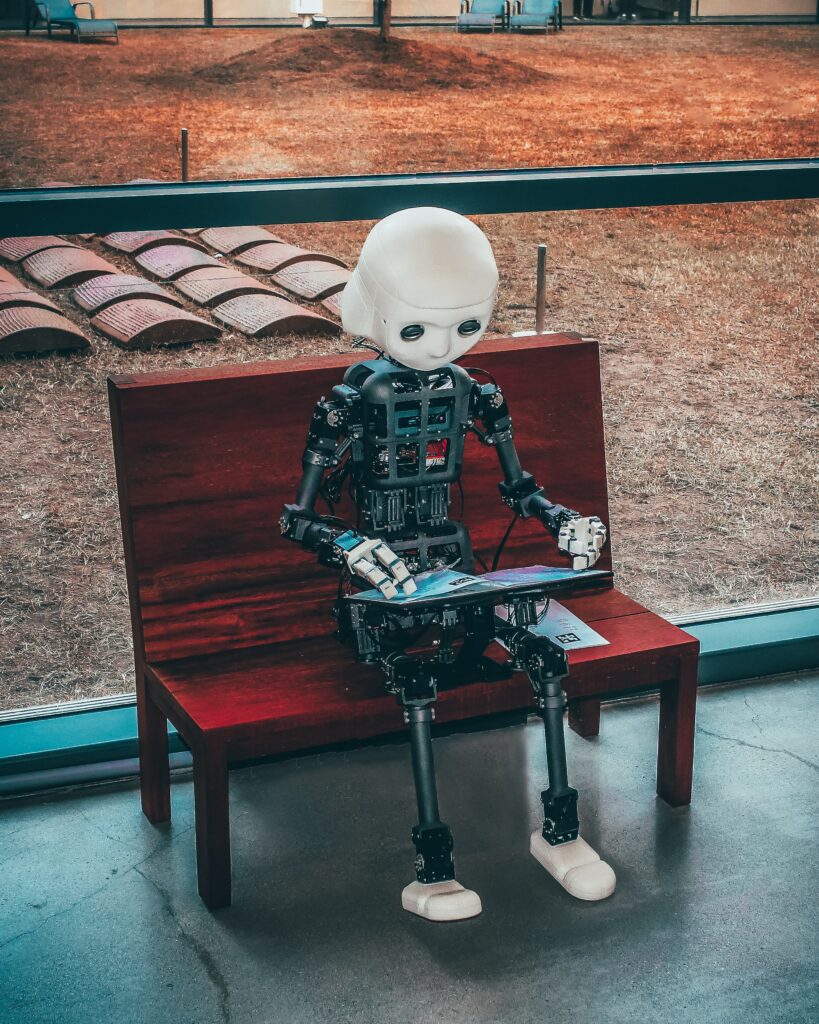Affects of trust in digitally mediated public service encounters between service providers and migrants.
Häkkinen, A., Chajed, A. & Ylipulli, J., (2023). Affects of trust in digitally mediated public service encounters between service providers and migrants. ETMU Days, Structures of Power and Oppression, 29th November – 1st December 2023, Jyväskylä.
Recent studies have pointed out that Finnish municipalities may not consider diversity in their planning enough. Even though Finland has relatively good public services, they may not be equally accessible and inclusive to everyone, especially migrants. Challenges include a lack of information in languages other than Finnish, Swedish or English. The high level of digitalization in public services also creates inequalities.
In this paper Trust M researchers Anne Häkkinen, Avanti Chajed and Johanna Ylipulli focus on the importance of trust in the interactions between linguistically diverse customers and public services. The researchers also aim to contribute to understanding how trust/distrust influences the use of digital services and technologies.

Socio-technical Design Directions for Fostering Migrants’ Trust in Public Sector Services.
Hosseini, Z., Olsson, T., Pakpour, A., Ylipulli, J., Tupasela, A.,Sawhney, N., Eskelinen, V. (2023). Socio-technical Design Directions for Fostering Migrants’ Trust in Public Sector Services. Apr 23, 2023 – Apr 28, 2023. Hamburg
Trust is an important part in creating a feeling of security. Citizens generally have high trust in fellow citizens, authorities and public institutions in Nordic welfare states. Many migrants, however, might not share this trust, which may lower the efforts by the public sector to facilitate their integration.
In this paper Trust M researchers Zahra Hosseini, Thomas Olsson, Amir Pakpour Haji Agha, Johanna Ylipulli, Aaro Tupasela, Nitin Sawhney and Viivi Eskelinen explores the connection between trust and security in the context of migration.
The authors explore migrants’ challenges to trust the host society and suggest initial directions for digitalization efforts that could help address the challenges associated with trust in the context of migration.

“Artificial Intelligence is a Cold Thing”: Understanding Experiences of Older Citizens to Design Municipal Digital Support Services.
Ylipulli J. and Eskola R. (2023, May): “Artificial Intelligence is a Cold Thing”: Understanding Experiences of Older Citizens to Design Municipal Digital Support Services. Workshop on Designing the City: Challenges and Opportunities in Public Service Design, Communities and Technologies (C&T) Conference, May 29–June 02, 2023, Lahti, Finland.
Older citizens’ digital skills may not be consistent; while they express strong concerns about data collection, they also lack some fundamental technical skills. Digital support should be designed to consider the needs of elderly. Broader understanding of technological phenomena in general should be increased to enhance the digital agency of the older citizens.
In this paper, Trust M researcher Johanna Ylipulli together with Riikka Eskola explore how older people use technology to help design better digital support services for them. For the study, the researchers did 14 interviewees with people aged over 65 and three people who help with technology. The study has been conducted as a part of DISC project (Digital Inequalities in Smart Cities, AoF grant no 332143), but it is contributing to topics relevant for Trust-M.

Practitioners’ Perspectives on Inclusion and Civic Empowerment in Finnish Public Sector AI.
Drobotowicz, K., Truong, L., Gonzalez Torres, A. P., Ylipulli, J., and Sawhney, N. 2023. Practitioners’ Perspectives on Inclusion and Civic Empowerment in Finnish Public Sector AI. In Proceedings of ACM Communities & Technologies Conference (C&T), May 29–June 02, 2023, Lahti, Finland.
Public sector is using more and more new technologies, such as artificial intelligence (AI), to create innovative services. These public services, which use AI, however, come with risks and responsibilities for citizens and the public service providers.
In this paper Nitin Sawhney, Johanna Ylipulli and Nghiep Lucy Truong from Trust M, together with Karolina Drobotowicz and Ana Paula Gonzalez Torres interviews ten people who work on AI services in Finland to explore attitudes, practices, and challenges in implementing inclusive AI services in the public sector, aiming to empower inclusivity and greater civic engagement.

Re-evaluating Evaluation: Looking for Value-based Metrics in Public Service Design.
Varanasi, U., Šerpytytė, R., & Sawhney, N. 2023. Re-evaluating Evaluation: Looking for Value-based Metrics in Public Service Design. Workshop on Designing the City: Challenges and Opportunities in Public Service Design, Communities and Technologies (C&T) Conference, May 29–June 02, 2023, Lahti, Finland.
Design is important for cities as it helps make things work better, from services to overall strategies. In this paper, Uttishta Varanasi, together with Ruta Serpytyte and Nitin Shawney from Trust M, argues that design and its evaluation need to go beyond quantitative measures and towards more value-based metrics, meaning that using numbers and checklists isn’t enough, as the public sector is more complicated than that.
As design researchers and practitioners working in the public sector, the authors do not agree that there is a perfect design for everything. They rather suggest that fairness and including everyone should be the most important things when talking about design in the public sector.

Participatory Design for Whom? Designing Conversational User Interfaces for Sensitive Settings and Vulnerable Populations
Houben, M., van As, N., Sawhney, N., Unbehaun, D., and Lee, M. 2023. Participatory Design for Whom? Designing Conversational User Interfaces for Sensitive Settings and Vulnerable Populations. In Proceedings of the 5th International Conference on Conversational User Interfaces (CUI ’23). ACM, NY.
Conversational User Interfaces (CUIs) are like talking computer programs that are used in places where people might need extra help, like those who have trouble remembering things (like people with dementia) or refugees who are learning new ways of doing things in a new country. Even though more and more researchers are making these interactive computer programs for these situations, there aren’t many ways to make sure they really work for the people who need them the most.
In this workshop paper, Nitin Sawhney from Trust M with his colleagues talks about figuring out how to make these talking computer programs better for people in these tough situations. The paper is available here.

